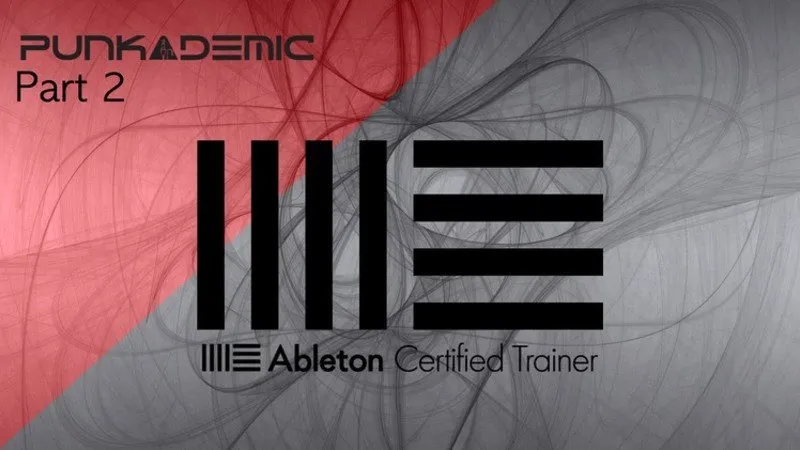
Ableton Live 10 Part 2: Recording & Warping 
Learn the basics of Ableton Live 10, Part 2: Recording & Warping ▼
ADVERTISEMENT
Course Feature
![]() Cost:
Cost:
Paid
![]() Provider:
Provider:
Kadenze
![]() Certificate:
Certificate:
Paid Certification
![]() Language:
Language:
English
![]() Start Date:
Start Date:
On-Demand
Course Overview
❗The content presented here is sourced directly from Kadenze platform. For comprehensive course details, including enrollment information, simply click on the 'Go to class' link on our website.
Updated in [May 19th, 2023]
Dr. Jason Allen, an award-winning instructor and university music business professor, presents ULTIMATE ABLETON LIVE 10 COMPLETE: PART 2. This course is designed to teach students how to record and warp tracks in Ableton Live 10. Dr. Allen is a professional musician, top-rated Udemy instructor, and university professor. He is also an ABLETON LIVE CERTIFIED TRAINER.
In this course, students will learn about recording hardware needs, microphone types and options, audio interface needs, MIDI hardware needs, and more. Dr. Allen will also provide tips and tricks for getting the most out of Ableton Live 10.
Students will be provided with sets, sessions, and experiments to try on their own and follow along with. Upon registering for this course, students will receive ongoing exclusive content and discounts to all future classes in the series.
This course is the perfect opportunity for students to learn how to use Ableton Live 10 for any genre of music. Don't miss out on this chance to become an expert in Ableton Live 10!
[Applications]
Upon completion of ULTIMATE ABLETON LIVE 10 COMPLETE: PART 2, students will have the knowledge and skills to record and warp tracks in Ableton Live 10. They will be able to apply this knowledge to create their own music productions, as well as understand the basics of recording hardware, microphone types and placement, audio interface needs, MIDI hardware needs, and MIDI setup. Additionally, they will have access to exclusive content and discounts to all future classes in the series.
[Career Paths]
Recommended career paths for learners of this course include:
1. Music Producer: Music producers are responsible for overseeing the production of music recordings. They work with artists, songwriters, and engineers to create the best possible recordings. They also manage budgets, coordinate recording sessions, and ensure that the recordings meet the artist's vision. As technology advances, music producers are increasingly using digital tools such as Ableton Live 10 to create and mix music.
2. Audio Engineer: Audio engineers are responsible for recording, editing, and mixing audio for a variety of projects. They use specialized equipment and software to capture and manipulate sound. With the rise of digital audio workstations, audio engineers are increasingly using Ableton Live 10 to create and mix music.
3. Music Composer: Music composers are responsible for creating original music for a variety of projects. They use a variety of instruments and software to create music. With the rise of digital audio workstations, music composers are increasingly using Ableton Live 10 to create and mix music.
4. Music Educator: Music educators are responsible for teaching music to students of all ages. They use a variety of methods to teach music theory, composition, and performance. With the rise of digital audio workstations, music educators are increasingly using Ableton Live 10 to teach students how to create and mix music.
[Education Paths]
Recommended degree paths:
1. Bachelor of Music Production: This degree program focuses on the technical and creative aspects of music production, including recording, mixing, and mastering. It also covers topics such as music theory, composition, and sound design. The degree is becoming increasingly popular as the music industry continues to evolve and technology advances.
2. Bachelor of Audio Engineering: This degree program focuses on the technical aspects of audio engineering, such as sound design, acoustics, and signal processing. It also covers topics such as music theory, composition, and recording. This degree is becoming increasingly popular as the music industry continues to evolve and technology advances.
3. Master of Music Technology: This degree program focuses on the creative and technical aspects of music technology, including recording, mixing, and mastering. It also covers topics such as music theory, composition, and sound design. This degree is becoming increasingly popular as the music industry continues to evolve and technology advances.
4. Master of Audio Engineering: This degree program focuses on the technical aspects of audio engineering, such as sound design, acoustics, and signal processing. It also covers topics such as music theory, composition, and recording. This degree is becoming increasingly popular as the music industry continues to evolve and technology advances.
Course Provider

Provider Kadenze's Stats at AZClass
Discussion and Reviews
0.0 (Based on 0 reviews)
Explore Similar Online Courses

I Am In Control: CBT Mindfulness and Neuroplasticity
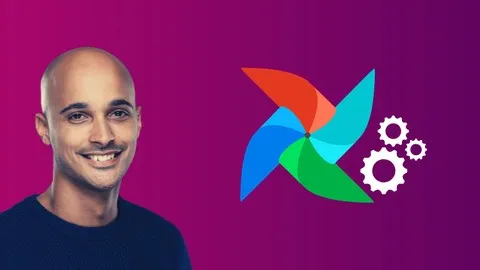
The Complete Hands-On Introduction to Apache Airflow

Python for Informatics: Exploring Information

Social Network Analysis

Introduction to Systematic Review and Meta-Analysis

The Analytics Edge

DCO042 - Python For Informatics

Causal Diagrams: Draw Your Assumptions Before Your Conclusions

Whole genome sequencing of bacterial genomes - tools and applications
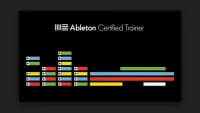
Producing Drums with Ableton Live and Drum Rack
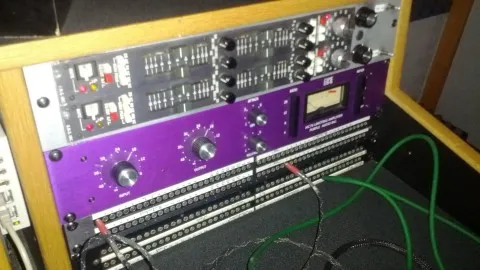
Free Audio Engineering Tutorial - Audio Engineering: Signal Flow
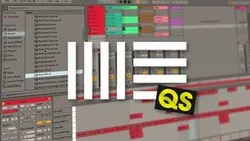

Start your review of Ableton Live 10 Part 2: Recording & Warping